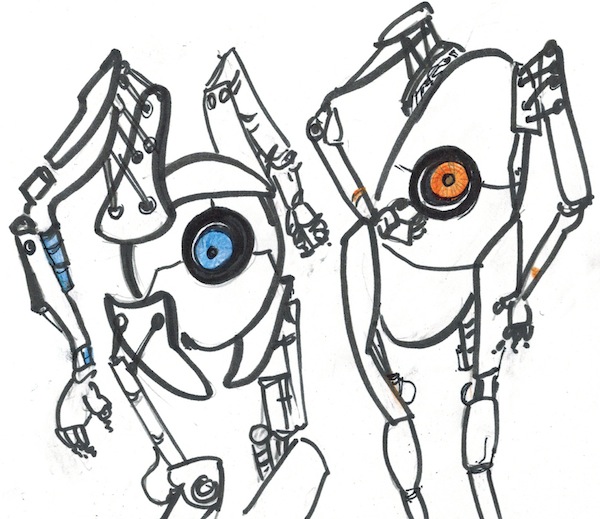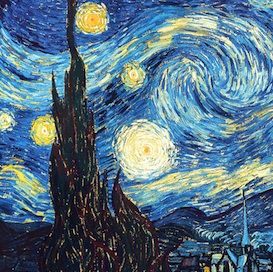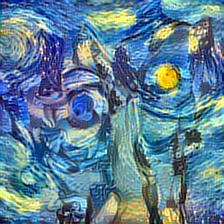CMPSCI 670: Computer Vision, Fall 2016
 |
+ |  |
= |  |
Instructor office hours: Tuesday 10:00-11:00am, CS 274
Lecture: Tuesday and Thursday, 1:00 - 2:15 PM, Hasbrouck 138
TA: Tsung-Yu Lin
TA office hours:Wednesday 3:00-4:00pm, CS 245
Links: Disucussions on piazza, Homeworks on moodle.
Overview
This course will explore current techniques for the analysis of visual data (primarily color images). In the first part of the course we will examine the physics and geometry of image formation, including the design of cameras and the study of color sensing in the human eye. In each case we will look at the underlying mathematical models for these phenomena. In the second part of the course we will focus on algorithms to extract useful information from images. This includes detection of reliable interest points for applications such as image alignment, stereo and instance recognition; learning representations of images for recognition; and principles for grouping and segmentation. Time permitting we will look at some additional topics at the end of the course.
Course assignments will highlight several computer vision tasks and methods. For each task you will construct a basic system, then improve it through a cycle of error analysis and model redesign. There will also be a final project, which will investigate a single topic or application in greater depth. This course assumes a good background in basic probability, linear algebra, and ability to program in MATLAB. Prior experience in signal/image processing is useful but not required.
Grading
- Mini projects (50%). Four or five mini projects to be done individually.
- Final project (25%). To be done in groups of two or more. Each individual or team will submit an initial proposal, make a final presentation, and submit a written report. Details will be posted in due course.
- Weekly homeworks (20%). One every week for a total of about 12 for the semester (1.67% each). The first homework will not be graded but is required. The homework is due before class on the date the homework is listed on the schedule. Each of these will be graded at pass (100%), mostly pass (50%), and fail (0%).
- Class participation (5%) Participation in discussions in class, moodle, etc.
Textbooks (recommended)
There is no required textbooks for the class. The second one is available online and I will recommend readings from this.- Computer Vision: A Modern Approach by David Forsyth and Jean Ponce (2nd ed.)
- Computer Vision: Algorithms and Applications by Richard Szeliski (pdf available online)
Announcements
- 09/14/16 Mini-project 1 posted on moodle.
- 09/12/16 Homework 1 posted on moodle.
- 09/08/16 Links to resources added to the bottom of the course page.
- 09/01/16 Previous course page archived here.
Schedule (tentative)
| Lec | Date | Topic | Slides | Reading | Homework |
| 1 | Sep 06 | Course introduction | 1UP, 4UP | MATLAB tutorial and setup | |
| Image formation basics | |||||
| 2 | Sep 08 | Image formation: pinhole cameras, lenses, color sensors, computational photography | 1UP, 4UP | RS 2 | hw00 |
| 3 | Sep 13 | ||||
| 4 | Sep 15 | Light, color, shading: radiometry, reflection, color representation, color perception, photometric stereo (also includes some slides covered on Sept. 22) | 1UP, 4UP | `RS 2 | hw01 |
| 5 | Sep 20 | ||||
| Basic image processing | |||||
| 6 | Sep 22 | Introduction: signal quantization, color maps, constrast normalization | 1UP, 4UP | RS 2,3 | |
| 7 | Sep 27 | Linear filtering: mathematical model and implementation details; applications: image denoising, sharpening, edge detection | 1UP, 4UP | RS 3 | |
| 8 | Sep 29 | p1 | |||
| 9 | Oct 04 | Invariant feature detection: corners and blobs | 1UP, 4UP | RS 4 | |
| 10 | Oct 06 | ||||
| Oct 11 | No class (Monday's schedule will be followed post Columbus day) | ||||
| Oct 13 | No class (Instructor travel) | ||||
| Recognition and other topics | |||||
| 11 | Oct 18 | Image alignment: Image transformations, RANSAC, image warping | 1UP, 4UP | RS 6 | |
| 12 | Oct 20 | Optical flow: Bightness constancy, estimating optical flow, tracking | 1UP, 4UP | RS 8 | |
| 13 | Oct 25 | Recognition: Recognition tasks in computer vision, common data sets, machine learning framework, image representations (histogram of oriented gradients, bag-of-words) | 1UP, 4UP | RS 14 | |
| 14 | Oct 27 | 1UP, 4UP | RS 14 | ||
| 15 | Nov 1 | Decision trees, bagging, random forests, examples | 1UP, 4UP | ||
| 16 | Nov 3 | Linear classifiers, learning as optimization, loss functions, regularizations | 1UP, 4UP | ||
| 17 | Nov 8 | Neural networks, shallow and deep learning, convolutional neural networks, visualizing and understanding CNNs, applications | 1UP, 4UP | ||
| 18 | Nov 10 | ||||
| 19 | Nov 15 | ||||
| 20 | Nov 17 | Grouping and segmentation | 1UP, 4UP | ||
| Nov 21 | Thanksgiving recess | ||||
| Nov 24 | |||||
| 21 | Nov 29 | Object detection: sliding-based detection, region-based detection | 1UP, 4UP | ||
| 22 | Dec 1 | Texture and materials: texture attributes and representations | 1UP, 4UP | ||
| 23 | Dec 6 | Image modeling: texture synthesis, image denoising, image deblurring | 1UP, 4UP | ||
| 24 | Dec 8 | Project presentations | |||
| 25 | Dec 13 | Project presentations | |||
Homework
All weekly homeworks are due on the date the homework is posted on the schdule before the class starts via moodle. You're free to use the LaTex source in any way you want, but you'll need mydefs.sty and notes.sty to build them.
Weekly homework Mini-projects- p1: color images
- [[remaning projects are on moodle]]
- [[instructions on moodle]]
Additional resources
- Matlab resources
- Vector geometry notes by Denis Sevee
- Linear algebra review (via David Kriegman)
- Random variables review (via David Kriegman)